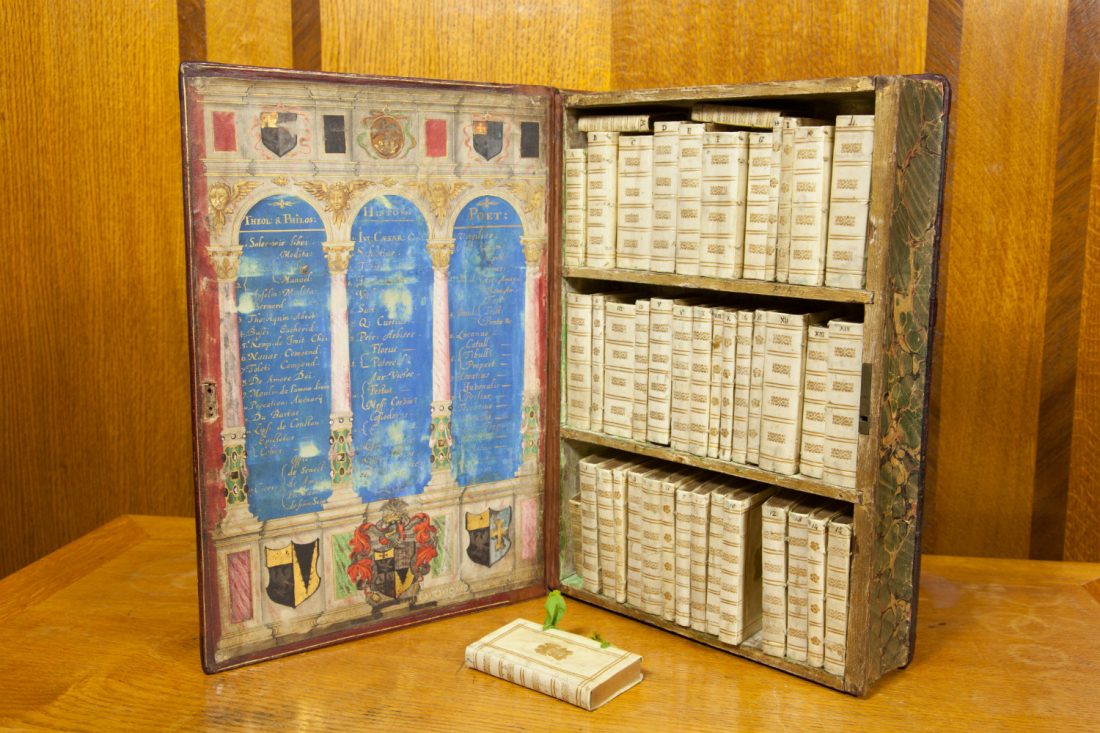
Image courtesy of the University at Leeds
In the striking image above, you can see an early experiment in making books portable--a 17th century precursor, if you will, to the modern day Kindle.
According to the library at the University of Leeds, this "Jacobean Travelling Library" dates back to 1617. That's when William Hakewill, an English lawyer and MP, commissioned the miniature library--a big book, which itself holds 50 smaller books, all "bound in limp vellum covers with coloured fabric ties." What books were in this portable library, meant to accompany noblemen on their journeys? Naturally the classics. Theology, philosophy, classical history, classical poetry. The works of Ovid, Seneca, Cicero, Virgil, Tacitus, and Saint Augustine. Many of the same texts that showed up in The Harvard Classics (now available online) three centuries later, and now our collection of Free eBooks.
Apparently three other Jacobean Travelling Libraries were made. They now reside at the British Library, the Huntington Library in San Marino, California, and the Toledo Museum of Art in Toledo, Ohio.
Note: An earlier version of this post appeared on our site in October, 2017.
Would you like to support the mission of Open Culture? Please consider making a donation to our site. It's hard to rely 100% on ads, and your contributions will help us continue providing the best free cultural and educational materials to learners everywhere.
Also consider following Open Culture on Facebook and Twitter and sharing intelligent media with your friends. Or sign up for our daily email and get a daily dose of Open Culture in your inbox.
Related Content:
A Medieval Book That Opens Six Different Ways, Revealing Six Different Books in One
Napoleon’s Kindle: See the Miniaturized Traveling Library He Took on Military Campaigns
Wearable Books: In Medieval Times, They Took Old Manuscripts & Turned Them into Clothes
Europe’s Oldest Intact Book Was Preserved and Found in the Coffin of a Saint
Discover the Jacobean Traveling Library: The 17th Century Precursor to the Kindle is a post from: Open Culture. Follow us on Facebook, Twitter, and Google Plus, or get our Daily Email. And don't miss our big collections of Free Online Courses, Free Online Movies, Free eBooks, Free Audio Books, Free Foreign Language Lessons, and MOOCs.
from Open Culture https://ift.tt/2Ah2enm
via Ilumina
Comments
Post a Comment